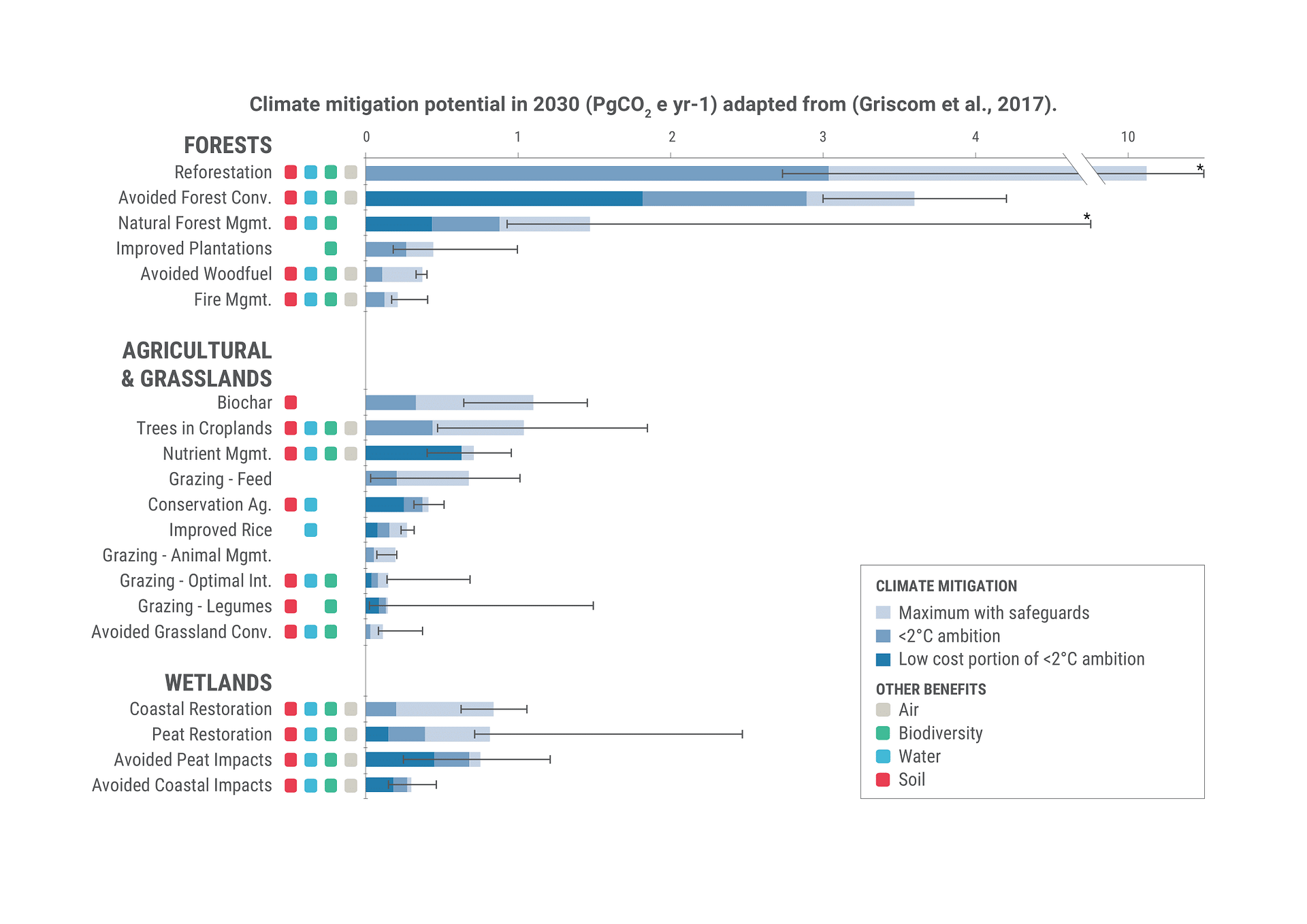Nature-based Solutions Policy Tracker
Using AI to track policy-making that enables NbS worldwide
The Nature-based Solutions Policy Tracker maps key policies that support the implementation of Nature-based Solutions (NbS). Using an automated search process, Metabolic and Arboretica identified enabling policies and government budgets that mentioned NbS. The tracker will help stakeholders to learn from best practices, understand investment needs and opportunities, and improve the allocation of resources.
- Partner: Arboretica (formerly ZFG Insights)
- Client: Nature4Cimate
- Date: October 2021
Raising awareness and ambition for Nature-based Solutions
Our response to climate change requires fundamental transformations across all sectors. Nature is a powerful ally: It is an asset for climate, biodiversity, and global health crises, and provides solutions that already exist. Nature-based Solutions (NbS) can help reduce emissions by 2030 by one-third, if investment also triples during this decade. Some countries are already taking action, but this needs to be scaled up. Governments can harness nature’s potential as a solution and develop enabling policies for long-term targets and pathways to facilitate the implementation of NbS.
Using AI to collect and evaluate policies
We used an artificial intelligence approach to identify relevant policies through automated web scraping, machine learning, and manual validation. We then graded the policies by basic, binary criteria that are proven to provide the best outcomes for NbS. Finally, we identified and highlighted a number of case studies where policies enable NbS. This allowed us to further identify where finance for NbS is flowing.
A global database of enabling policies
The NbS Policy Tracker database bridges an important climate policy tracking gap. It identifies effective government initiatives, particularly budgets, legislation, and subsidies. This first iteration of the tracker mapped more than 220 policies across 80 countries. A thorough, manual policy analysis helped us to identify best practices and select 11 exemplifying case studies. We found that the most common focus among these solutions was coastal restoration, followed by tackling deforestation, community-led conservation, and reforestation. Future versions of the tracker will include more policies from more countries as we refine our search algorithm to include non-English languages and search terms.






“What we wanted to do was take the science that everyone’s seen, and then look at the case studies that we know are happening on the ground. So this isn’t a debate about definitions. This isn’t a debate about whether we like the word nature-based solutions or natural climate solutions. It’s a debate about what’s actually happening, and it is happening on different levels. It’s about driving quality at scale and speeding it up because we’ve got until 2030. We need to do this right the first time. We haven’t got a chance to go back and do this twice.”
James Lloyd, director of the Nature4Climate coalition
“The NbS Policy Tracker is just the tip of the iceberg in terms of what is possible. As the world faces unprecedented environmental challenges, it is increasingly important to include nature in our policy decisions, for both climate and biodiversity goals. With this tracker, our goal is to accumulate more and more examples of relevant government action, which can inspire and influence better decisions around the world.”
Louisa Durkin, sustainability consultant and the project lead at Metabolic
Director
ANY QUESTIONS?
For more information about this project, please get in touch.





